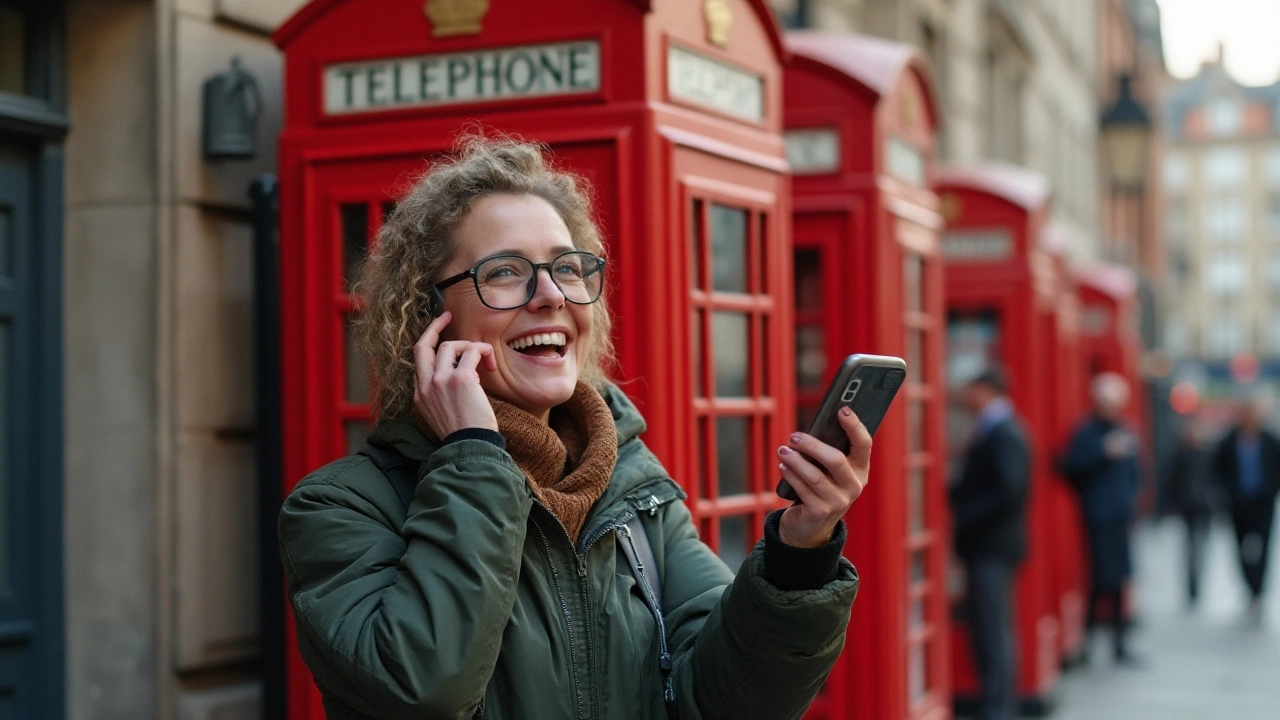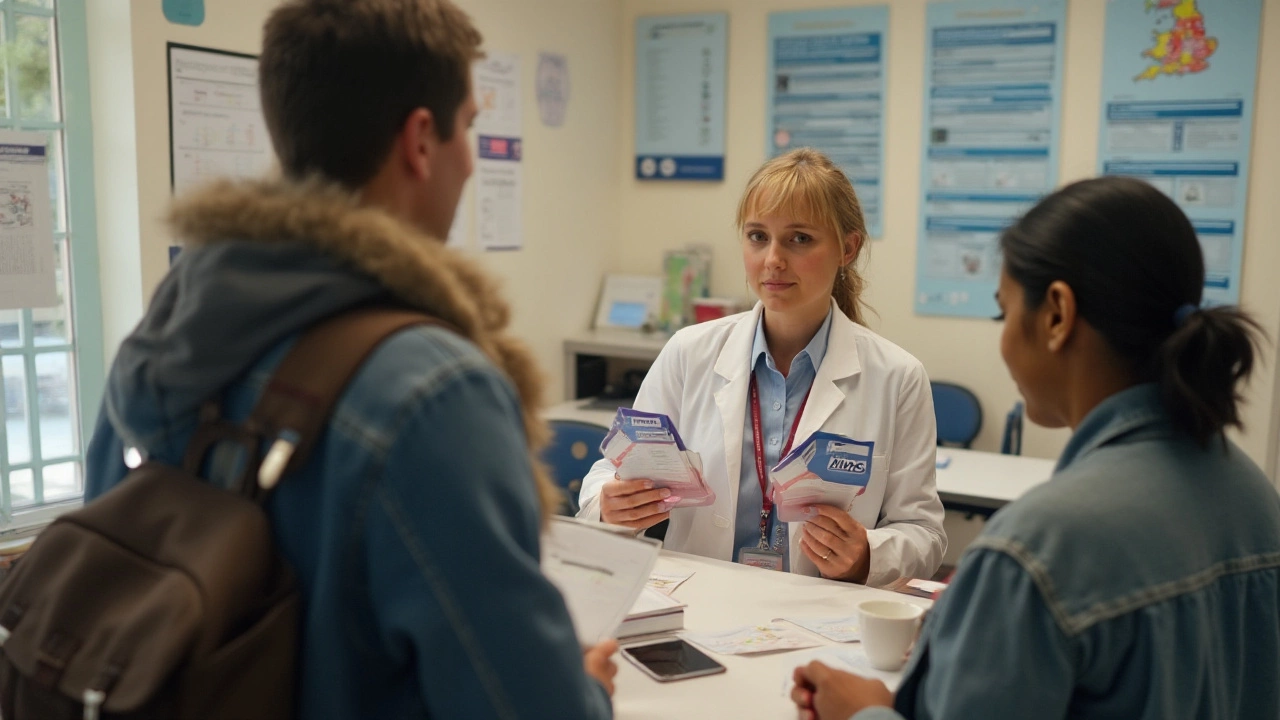Traveling to the UK brings with it not just the charm of ancient castles and vibrant cities but also questions about healthcare accessibility. Visitors often wonder if they can benefit from the acclaimed National Health Service (NHS) without worrying about costs. While the NHS does extend certain services to tourists, knowing what is covered and the conditions attached is crucial for hassle-free travel.
The NHS, while a beacon of free healthcare for UK residents, operates differently for international visitors. Understanding your eligibility and the exceptions that apply can save you both time and money in unforeseen health situations. It's not just about access, but knowing the kinds of treatment you can receive while on UK soil.
While some medical services are indeed available to tourists at no cost, relying solely on this can be risky. We dive into the importance of having reliable travel insurance. It's your safety net, ensuring that your health needs are met without unexpected expenses cropping up during your visit. Prepare yourself with knowledge and the right precautions for a seamless travel experience.
- Understanding NHS Service for Tourists
- Eligibility and Exceptions
- What Medical Services Are Covered
- Importance of Travel Insurance
Understanding NHS Service for Tourists
When tourists step foot in the UK, the National Health Service (NHS) often catches their interest. This service, iconic for its universal and no-cost approach for UK residents, holds a slightly different promise for visitors. The NHS was designed to provide equitable healthcare access irrespective of one's financial status. However, for tourists, understanding what the service covers is key to navigating health needs abroad. The NHS offers certain free services to tourists, but these are primarily limited to emergency treatments in accident and emergency departments or when immediate intervention is required. It is not uncommon for tourists to assume that the NHS will cover all medical needs without fees, but the scope is more limited.
While emergency services are accessible, visitors should be aware that general practitioner (GP) visits, prescriptions, dental care, and eye tests typically incur charges without the appropriate health insurance. As a visitor, registering with a GP may come with complexity and is often not an option unless you are in the UK for an extended period. Notably, healthcare for some categories, such as antenatal, childbirth services, and communicable disease treatment like TB, are offered to some extent free of charge, reflecting the NHS's commitment to public health.
The dynamics of the NHS's offerings to international visitors can vary based on reciprocal healthcare agreements between countries. Citizens from certain countries with existing healthcare agreements have the advantage of receiving treatment similar to UK residents. A piece of advice from the University of Oxford summarizes the essence of preparedness:
"Never start your UK journey without understanding the healthcare system nuances and having comprehensive travel insurance."The NHS is a trusted healthcare framework within the UK, but tourists should guard against assumptions and always back their trips with robust travel insurance policies.
The service's efficiency for tourists significantly hinges on understanding these intricacies before arriving in the UK. While navigating the NHS, keywords such as UK healthcare and NHS services should mark your research and checklist as you plan the trip. A common myth is that the NHS covers all tourists, which it does not. Being mindful of the limitations and planning accordingly ensures that any unforeseen medical expenses are covered, keeping the travel experience smooth and delightful.

Eligibility and Exceptions
When visiting the UK, it's crucial to understand the nuances of how the NHS services extend to tourists. Generally, free access to the NHS is a privilege enjoyed by residents of the UK. However, this doesn't entirely exclude tourists from receiving care. Emergency care in hospitals, such as A&E (Accident and Emergency services), is typically provided free of charge regardless of a person's nationality. However, subsequent inpatient or outpatient treatment may not be offered without costs attached to it.
One key factor influencing eligibility is the country of origin. For instance, citizens of the European Union and those from certain countries with reciprocal healthcare agreements with the UK may find themselves entitled to broader access. This agreement often covers healthcare at the same level as UK residents, though it's always advisable to check the most up-to-date status of these agreements, especially in light of recent policy changes post-Brexit.
Citing the UK government's advice, it's recommended that even those from partnered countries carry an EHIC (European Health Insurance Card) or its successor, the GHIC, to help prove eligibility for certain treatments.
Family ties can also play a pivotal role. If a tourist, for example, has a close relative who is a UK resident and falls ill while visiting, they might access necessary treatments under limited circumstances. Meanwhile, travelers who work for an employer based in the UK, even temporarily, may also gain access akin to that of residents. These rules have specific criteria and are subject to stringent checks; thus, it's wise to consult official sources or seek local advice to clarify your standing. Moreover, obtaining detailed travel insurance remains a smart choice to avoid unexpected medical expenses.
Exceptions exist where certain services are invariably charged. Maternity care and routine dental services are not covered for tourists unless they fall into one of the aforementioned eligibility categories. Seeing a GP (General Practitioner) is often possible, albeit with the expectation of paying as a private patient, unless connected through aforementioned eligibility such as the EHIC. Even then, the specifics can vary significantly between regions and practices in the UK, as each can have its own policies regarding the treatment of tourists and their costs.

What Medical Services Are Covered
For tourists visiting the UK, understanding what medical services are available under the National Health Service (NHS) is essential to a comfortable stay. The NHS is widely recognized for providing comprehensive healthcare without charging UK citizens at the point of delivery. However, as a tourist, you might find it a bit more nuanced. Emergency services, for example, are generally accessible to anyone in the UK, regardless of residence status. If you find yourself in a life-threatening situation, you can obtain emergency treatment at NHS accident and emergency departments. This accessibility also extends to urgent care centers that address unplanned medical needs promptly without the need for appointments. Still, it's worth noting that the definition of an 'emergency' is determined strictly by medical professionals on the spot.
In situations that are not deemed emergencies, tourists face different circumstances. Routine treatments and non-urgent consultations, which the locals may not pay for, might come with a price tag for tourists. If a condition is identified as requiring extended treatment beyond immediate stabilization, then tourists might receive a bill for ongoing care. Preventative medical services, like vaccinations, and general check-ups do not typically fall under free services unless specifically covered by reciprocal healthcare agreements in certain cases. With this knowledge, many tourists choose to supplement their travel plans with comprehensive travel insurance to cover potential costs.
The NHS maternity services also extend emergency care to all who need it, but more comprehensive maternity services attract fees for non-residents unless they fall under particular exceptions. It's equally crucial to recognize that dental treatments and optical services fall outside the realm of services typically provided for free to tourists. These services are often private and require payment unless you have specific global health coverage plans that cover such costs. Remember too, that prescriptions obtained while in the UK also require payment and are not generally free to tourists unless covered under an international healthcare arrangement.
According to a statement by the Department of Health and Social Care, "Emergency hospital treatment stays a priority for all while visiting the UK, although other treatments might not be offered free unless outlined by reciprocal agreements." This statement exemplifies the NHS's commitment to emergency care while outlining the limitations on other treatments.
Let’s take a closer look at practical considerations. There are several NHS services outlined in specific agreements with certain countries, offering reduced-cost or free treatments. This means that as a tourist, part of your pre-travel homework should include checking any bilateral healthcare agreements your home country might have with the UK. Knowing your rights under these agreements can make navigating NHS services in non-emergency situations much easier and cost-effective. It's an important preparation step to ensure peace of mind when traveling. To wrap this up, while the UK offers some level of healthcare accessibility to all visitors, understanding what services are covered allows for better travel planning.

Importance of Travel Insurance
Travel insurance plays an indispensable role for tourists visiting the UK, ensuring peace of mind throughout the journey. The unpredictability of travel can often lead to unforeseen medical emergencies, making it vital to have a safety net. Even though the UK's National Health Service (NHS) extends a range of healthcare services, it does not cover everything without cost for international visitors. Travel insurance becomes essential in bridging these gaps, covering expensive medical treatments that would otherwise lead to substantial financial burdens.
One should consider that while basic emergency care might be available through NHS facilities, other forms of treatment often come at a cost for non-residents. Treatments for chronic conditions or specialty care are usually not free, and it's here that having a robust travel insurance plan proves its worth. Imagine being in the hustle and bustle of London and unexpectedly requiring specialized care—the expenses can quickly escalate without proper insurance. This is why travel insurance is more than just a formality; it is a critical component of travel planning.
Moreover, travel insurance doesn't just cover medical expenses. It also provides coverage for trip cancellations, lost luggage, and even repatriation if needed. These ancillary benefits are key in ensuring a smooth travel experience, providing a safety net that extends beyond health concerns alone. According to a survey by ABTA, the Travel Association, over 40% of vacationers have needed to make a claim on their policy at some point. This statistic underscores the significance of being prepared.
Another compelling case for securing travel insurance is the nature of healthcare systems worldwide, which may differ significantly from your home country. In the UK, out-patient services like GP appointments might not be easily accessible for tourists, and dental or optical care typically requires upfront payment. Having a comprehensive travel insurance plan that includes these aspects can save countless headaches, both literally and figuratively.
"Travel far enough, you meet yourself," said David Mitchell. Insurance ensures your journey to self-discovery is uninterrupted by unforeseen setbacks.
Planning for your trip should always include comparing and purchasing appropriate travel insurance. While some might feel that it's an unnecessary expense, the reality is that without it, even a minor incident can lead to major disruption. Consider evaluating policies that offer cashless claim benefits, as these are often more convenient and offer faster resolution to any claims made while abroad. A discerning traveler knows that trip insurance is not just about keeping medical costs manageable but is also about providing assistance when plans change unexpectedly.




